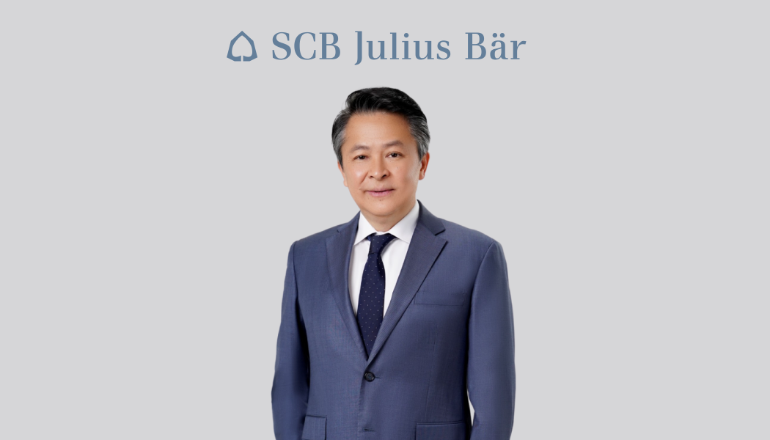Itaú and Unibanco will create Brazil’s biggest domestic private
bank and form the southern hemisphere’s largest bank. Lywal Salles,
the head of Itaú’s private bank, spoke to William
Cain about the opportunities for the new Brazilian banking
giant.
 Lywal Salles, head of private banking at Banco Itaú,
Lywal Salles, head of private banking at Banco Itaú,
believes the merger between it and Unibanco will create an even
more competitive player in the Brazilian private banking
market.
Salles, speaking to PBI at its annual awards summit in
Singapore, said he was optimistic about the positioning the new
BRL575.1 billion-asset ($265 billion) Itaú Unibanco Holding
business would gain in the Brazilian market. The deal creates the
country’s largest private bank, with $43 billion in assets under
management (AuM) and $403 million in annual revenue.
It will also have an 18 to 24 percent market share in a variety
of retail banking, insurance and pension areas. But Salles admitted
there would be some challenges in integrating the two
businesses.
He said: “I don’t think there’s a single recipe about how to
integrate cultures. First of all, you have to adapt and understand
the culture of the bank you are acquiring. You have to be careful
when you’re doing this. On the other hand, we have always been
successful in this area.”
He added: “The key to integration is a willingness to understand
when bringing people in that they may previously have been managed
in a different way, they may have different values.”
How well do you really know your competitors?
Access the most comprehensive Company Profiles on the market, powered by GlobalData. Save hours of research. Gain competitive edge.

Thank you!
Your download email will arrive shortly
Not ready to buy yet? Download a free sample
We are confident about the unique quality of our Company Profiles. However, we want you to make the most beneficial decision for your business, so we offer a free sample that you can download by submitting the below form
By GlobalDataItaú, the second-largest privately owned bank in Brazil after
Bradesco, announced in late October it was merging with Unibanco,
the country’s fifth-largest bank, but second-largest in terms of
private banking market share.
Itaú Unibanco will have a 31.9 percent market share in the
Brazilian onshore business – a country with a traditionally more
onshore bias than its Latin American neighbours.
Salles said: “It creates a private bank with $43 billion of
assets under management, so it will be, as soon as we merge – as
well as an institution with a lot of other talents – a very
competitive private bank.”
Itaú Unibanco will have onshore assets of around $30 billion and
offshore AuM of $13 billion.
Bank officials said the merger would allow the banks to
strengthen their support to Brazilian businesses and clients,
expand the business in Brazil and internationally – as well as
creating “substantial synergies in various businesses”. The banks
estimate the deal will add BRL142 million to the bottom line in the
merged entity’s full-year results, with the merger becoming
earnings accretive in 2009. Officials added both banks have strong
internal segmentation strategies and the merger would bring
together their “remarkable complementary aspects”. Talks between
Unibanco and Itaú had been ongoing for the past 15 months.
Wealth moving onshore
 The financial crisis has so far prompted private clients in
The financial crisis has so far prompted private clients in
Brazil to move more of their wealth onshore, according to industry
reports. Concern over the health of the big European and US private
and investment banks has seen assets transferred to domestic
institutions perceived to be safe havens – like Bradesco, Itaú and
Unibanco. Forty-six percent of Brazilian private banking assets are
held onshore according to Brazil’s National Association of
Investment Banks, compared to 32 percent in Mexico and Venezuela,
17 percent in Argentina and 35 percent in Latin America as a
whole.
Salles said: “There are opportunities. Certain players have lost
credibility and clients have reacted with astonishment to the falls
in their wealth. When they are wounded and hurt in this way,
clients are more willing to listen to a new proposition.”
Brazil is expected to have 675,000 households earning more than
$1 million by 2017, compared to 190,000 in 2007, according to
Barclays and Boston Consulting Group figures. Attracting the
business of these clients is, according to Salles, a difficult task
when competing against traditional wealth management players like
Credit Suisse and UBS, particularly because of the low barriers to
entry in private banking. The key to success is to differentiate
from the global players which established locally, he said.
Salles said: “You’ve got to work on your referrals, both within
the business and with third parties, and you’ve got to be flexible
on products, have strong local market knowledge, a quick and agile
decision making process and quality people in the bank.”
In particular, Salles said the bank had its best chance of
success in the mass affluent and high net worth sector, mainly in
the onshore business. Multifamily offices and offshore players made
the environment at the high net worth and ultra high net worth end
of the spectrum more competitive, and particularly when it came to
serving clients offshore.
Salles added: “At the end of the day it is about how we private
banks come out of this crisis. Everyone is looking at us – clients,
media and everyone else. How are we going to react to this? I truly
believe we have to be about change. You don’t have to be big, you
don’t have to be smart but you do have to be adaptable to change if
you’re going to be a success.”







